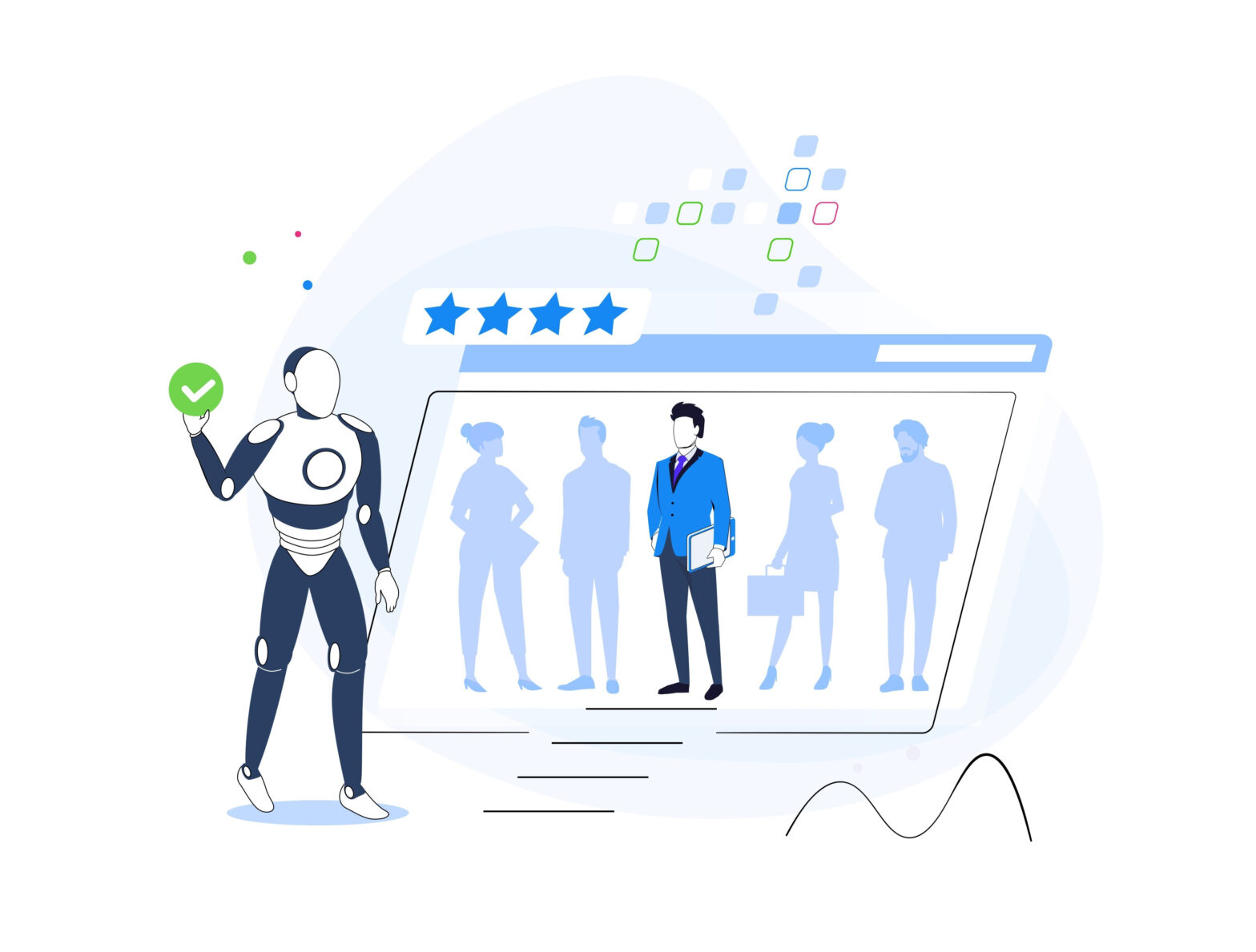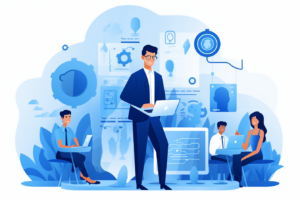Generative AI: The future of business and HR
- 6 Min Read
Generative AI has the potential to revolutionise the way HR leaders hire talent, implement learning and development programs, and ensure workplace culture remains positive. To reap the benefits, they must embrace this technology and find ways to integrate it into their processes
- Author: Rachael King
- Date published: Jan 31, 2023
- Categories

To contribute to HRD Connect’s latest research into how generative AI will impact businesses, please click here.
Artificial intelligence has already transformed numerous industries and will continue to shape the future of work in unprecedented ways. One of the most exciting and impactful developments in AI is generative AI. Generative AI refers to AI systems that can generate new content, designs, or products.
This new technology has the potential to revolutionise the way businesses operate, including the way HR leaders hire talent, implement learning and development programs, and maintain positive workplace culture.
Changing the way talent is hired
Generative AI has the potential to change the way HR leaders hire talent. AI algorithms can analyse vast amounts of data, identify patterns, and make predictions about the likelihood of a candidate’s success. This technology can also screen resumes and applications, freeing up HR leaders’ time to focus on more strategic tasks.
Moreover, generative AI can generate new job descriptions and even identify the ideal candidate based on the role requirements.
This technology can also create a virtual interviewing process where candidates are asked pre-determined questions, and the AI algorithms analyse their responses, giving HR leaders a more objective and unbiased view of the candidate.
Having a more objective and unbiased view of candidates is critical for HR leaders for several reasons, one being that it improves diversity and inclusiveness which has become a cornerstone of every HR strategy over the years.
By relying on AI algorithms to analyse candidate responses, HR leaders can ensure that all candidates are evaluated objectively and fairly. This can help to increase diversity in the workplace and promote a more inclusive culture.
Using AI during the recruitment process could also have a knock-on impact on business growth. Hiring externally is an expensive process, and it is not always guaranteed that top talent will remain with a company for a prolonged period once hired.
AI algorithms can identify patterns and predict a candidate’s likelihood of success, providing valuable insights into the candidate’s skills, experience, and potential. This can help HR leaders make more informed decisions and reduce the risk of making a bad hire.
Impact on learning and development
Generative AI is also likely to revolutionise the way HR leaders implement learning and development programs.
AI algorithms can create personalised learning plans for employees, considering their current skills, interests, and career goals. This technology can also generate new training materials and programs, ensuring that employees have access to the latest information and tools.
Generative AI can also track employees’ progress, providing HR leaders with valuable data about their strengths and areas for improvement.
This information can be used to create a more effective and efficient learning and development program, helping employees reach their full potential.
Improving workplace culture with AI
There is also a role for generative AI to play in maintaining positive workplace culture. AI algorithms can analyse vast amounts of data about employee behaviour and attitudes, helping HR leaders to identify trends and potential issues.
For example, AI can detect changes in employee morale or work satisfaction and generate recommendations for improving workplace culture.
Similarly, generative AI can create new programs and initiatives aimed at improving culture, such as team-building exercises, company events, and community outreach programs. This technology can also provide HR leaders with valuable insights into what employees want and need, helping to create a more engaged and motivated workforce.
Barriers to implementation
While generative AI holds tremendous promise, there are several barriers to its implementation. One of the most significant challenges is a lack of trust in the technology. Many employees and HR leaders may feel unsure about relying on AI algorithms to make important decisions, such as hiring or learning and development.
Another challenge is the cost of implementation. Generative AI systems require significant investment in hardware and software, as well as the necessary infrastructure to support the technology. This can be a significant barrier for many businesses, especially those with limited budgets.
Furthermore, there may be resistance to change, particularly among employees who are used to traditional HR processes and procedures. Overcoming this resistance will require effective communication and training, as well as a willingness to adapt to new technologies and approaches.
FastFutures powered by Avado, has launched the UK’s first Generative AI Skills Bootcamp to help assist businesses with the transition. Participants will be the first to undergo in-depth training on how to harness generative AI tools to improve their performance and productivity.
The bootcamp offers organisations seeking to implement game-changing Gen-AI technologies at a fast pace to upskill their workforce and increase overall business productivity and competitiveness at scale. The bootcamp will provide training across multiple business functions, use cases and practical applications to unlock the potential of this latest advance in technology for the UK’s workforce.
“This is not a drill”, says Lee Arthur, CEO of Avado. “Generative AI is the most transformative thing in business since the internet. A solid understanding of this is mandatory for leaders and organisations to thrive and not be left behind by the competition. For the UK economy it creates the opportunity to move to inconceivable levels of GDP growth, 6-10% sounds fantasy, but is not”.
The future of generative AI for the HR function
Generative AI is set to revolutionise the way businesses operate; while there are significant challenges to overcome, the potential benefits are immense.
HR leaders who embrace this technology and find ways to integrate it into their processes will be well-positioned to stay ahead of the curve and reap the benefits of generative AI.
By automating routine tasks, generating new and innovative ideas, and providing valuable insights into employee behaviour and attitudes, generative AI has the potential to transform HR and the way we work.
The future of work will be shaped by technology, and generative AI is sure to play a major role. As businesses adopt this new technology, HR leaders will need to be at the forefront of change, leading the way and driving innovation.
With the right approach, generative AI has the potential to bring about a new era of success for businesses and HR.
To contribute to HRD Connect’s latest research into how generative AI will impact businesses, click here.







